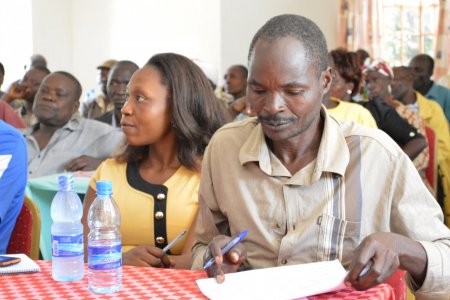 Wairimu Gitau/MSF
Interview
Wairimu Gitau/MSF
Interview
11/30/2022
Pierre Mendiharat
Elba Rahmouni
Léon Salumu Luzinga
This article was published on December 22nd, 2021, in the Journal of Humanitarian Affairs (Issue 3, Volume 3).
Despite a concerted international effort in recent decades that has yielded significant progress in the fight against HIV/AIDS, the disease continues to kill large numbers of people, especially in certain regions like rural Ndhiwa district in Homa Bay County, Kenya. Although there is still no definitive cure or vaccine, UNAIDS has set an ambitious goal of ending the epidemic by 2030, specifically via its 90-90-90 (treatment cascade) strategy – namely that 90 per cent of those with HIV will know their status; 90 per cent of those who know their status will be on antiretroviral therapy and 90 per cent of those on antiretroviral therapy will have an undetectable viral load. These bold assumptions were put to the test in a five-year pilot project launched in June 2014 by Médecins Sans Frontières (MSF) and Kenya’s Ministry of Health in Ndhiwa district, where an initial NHIPS 1 study by Epicentre (MSF’s epidemiology centre) in 2012 revealed some of the world’s highest HIV incidence and prevalence, and a poor “treatment cascade”. Six years later a new Epicentre study, NHIPS 2, showed that the 90-90-90 target had been more than met. What explains this ‘success’? And given the still-high incidence, is it truly a success? What follows is an interview on the political, scientific, and operational challenges of the Ndhiwa project with MSF Deputy Director of Operations Pierre Mendiharat and physician Léon Salumu, Head of MSF France Kenya programs, conducted by Elba Rahmouni.
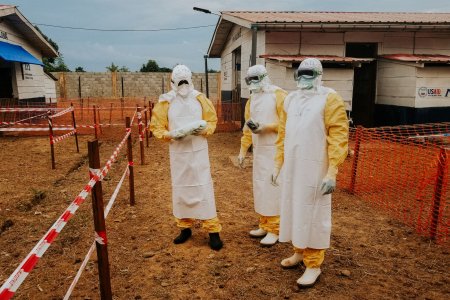 MSF
Analysis
MSF
Analysis
11/04/2022
Natalie Roberts
This article was published on December 22nd, 2021 in the Journal of Humanitarian Affairs (Issue 3, Volume 3).
In this article, Natalie Roberts analyses the actions and positioning of MSF during the Ebola outbreak in Nord Kivu (Democratic Republic of Congo, 2018-2020).
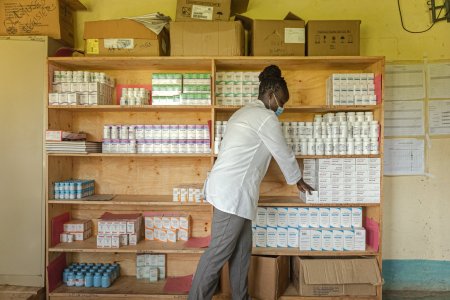 Njiiri Karago/MSF
Analysis
Njiiri Karago/MSF
Analysis
09/16/2022
Rony Brauman
In this article, Rony Brauman identifies the dynamics and events that made bending the HIV/AIDS epidemic curve possible. He explains the climate in which the tug-of-war with parts of the pharmaceutical industry played out from MSF’s perspective, and recalls that fears about international security and political stability also helped push governments to mobilise against the epidemic.
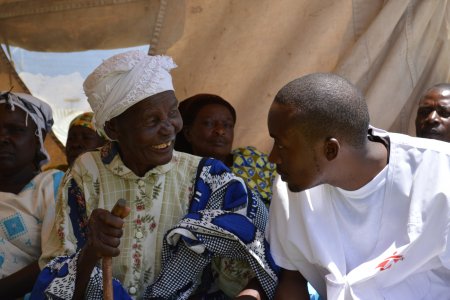 Jean-Christophe Nougaret/MSF
Analysis
Jean-Christophe Nougaret/MSF
Analysis
11/14/2021
Elba Rahmouni
Pierre Mendiharat
Léon Salumu Luzinga
This article was first released in the 18th volume of the Humanitarian Alternatives magazine. Designed to reduce the incidence of HIV/AIDS in a Kenyan district, a Médecins Sans Frontières project successfully exceeded the “90-90-90” target set by UNAIDS. A look back on the results that the authors of this article - Pierre Mendiharat, Deputy director of operations at MSF France and Léon Salumu Luzinga, Program manager at MSF France, interviewed by Elba Rahmouni - believe are encouraging but by no means a guarantee that the epidemic will be over by 2030.
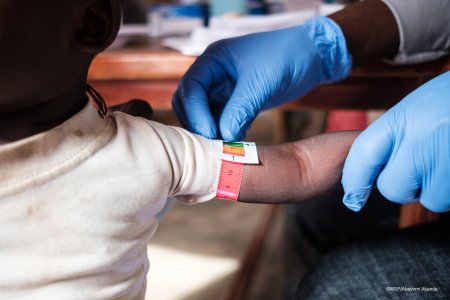 Abayomi Akande
Interview
Abayomi Akande
Interview
05/05/2022
Jean-Hervé Bradol
Elba Rahmouni
All the warning lights are flashing red this year: drought, the high prices of grains and fertilisers exacerbated by the war in Ukraine, reduced imports and speculation, numerous armed conflicts, a record number of refugees to be fed, disengagement of institutional donors,… With the exception of locusts, all the determinants of severe food scarcity are there, from Afghanistan to the Sahel, including Yemen, the Horn of Africa, and the Indian subcontinent. To the point of threatening all of the progress that was made in treating undernutrition after the 2005 crisis in Niger, which was the starting point for global advances in managing malnutrition in places where it is commonplace. It is time for a general mobilisation to limit the scale of the coming catastrophe. Interview with Jean-Hervé Bradol by Elba Rahmouni.
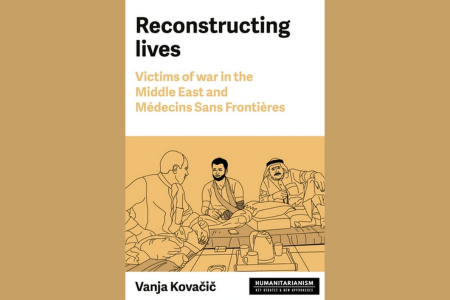 MSF
Book
MSF
Book
04/01/2022
Vanja Kovacic
Reconstructing Lives: Victims of war in the Middle East and Médecins Sans Frontières was published in January 2022 by Manchester University Press. The book is the result of extensive fieldwork, in collaboration with the Crash. It is fully available on our website.
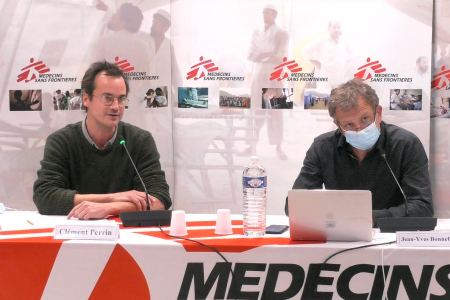 Conference
Conference
12/09/2021 - 06:30 PM 08:30 PM
Yves Clot
Jean-Yves Bonnefond
The members of the Crash were very happy to welcome you all to this conference-debate with occupational psychologists Yves Clot and Jean-Yves Bonnefond, two of the authors of “Le prix du travail bien fait – La coopération conflictuelle dans les organisations” (Paris, La Découverte, 2021 ; co-written with Antoine Bonnemain and Mylène Zittoun). This event, prepared with Judith Soussan, was moderated by Clément Perrin.
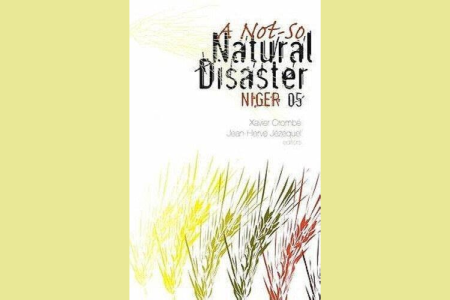 Book
Book
10/01/2007
Xavier Crombé
Jean-Hervé Jézéquel
Twenty years after the charity concerts for the Sahel Nigerien politicians, institutional donors, aid agencies and humanitarian organisations clashed on the nature and substance of the crisis affecting Niger in 2005. Identifying the causes of, and adequate responses to, the situation also gave rise to profound disagreements. Having set up their most ambitious emergency nutrition programme to date, Médecins Sans Frontières found itself at the forefront of these controversies.
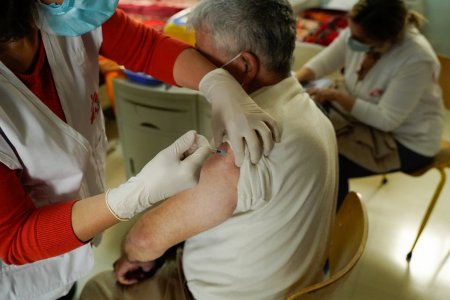 Mohamad Cheblak/MSF
Review
Mohamad Cheblak/MSF
Review
05/07/2021
Michaël Neuman
Natalie Roberts
We can all agree that the emergence of Covid-19 vaccine is “an absolutely astonishing development”, but vaccines are unlikely to completely halt the spread of the virus, let alone eradicate it. Yet even without achieving herd immunity, the ability to vaccinate vulnerable people seems to be reducing hospitalizations and deaths from Covid-19.
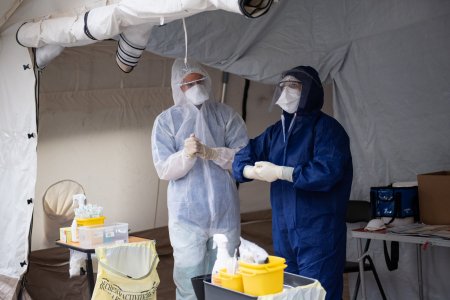 Clément Mahoudeau/MSF
Analysis
Clément Mahoudeau/MSF
Analysis
12/02/2020
Michaël Neuman
Emmanuel Baron
In this paper, the two authors examine certain aspects of the French response to the epidemic in the light of the experience of Médecins Sans Frontières (MSF) in that field, primarily with respect to the relationship between the actors of the response and the beneficiaries.
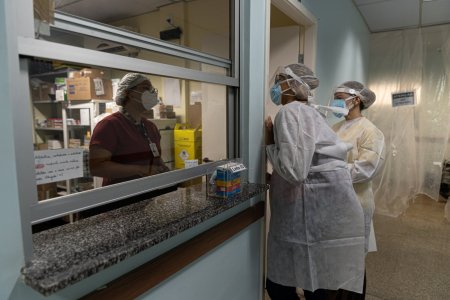 Mariana Abdalla/MSF
Opinion
Mariana Abdalla/MSF
Opinion
02/19/2021
Jean-Hervé Bradol
Isabelle Defourny
Blog written by Jean-Hervé Bradol, director of studies at the Crash.
Today, in order to obtain supplies of vaccines against Covid-19, there is neither a major difficulty related to price, nor a major obstacle related to intellectual property rules, nor a deficit in bio-medical research. However, these three topics are generally at the heart of MSF's communication in the area of access to medical care for those in most need. Our discourse must therefore evolve.
With the emergence of worrying variants of the virus present in the early stages of the pandemic and, as a consequence, the need to vaccinate on a global scale as quickly as possible, the world is facing a double challenge: biological engineering and ultra-industrial production – “ultra” echoing the need to produce on a global scale in a short period of time.
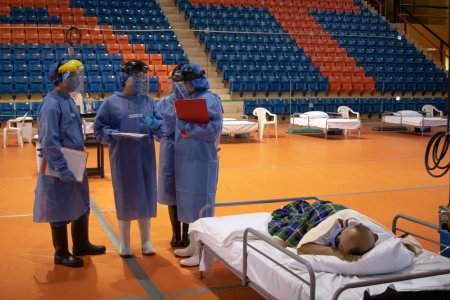 MSF/Arlette Blanco
Review
MSF/Arlette Blanco
Review
11/20/2020
Michaël Neuman
Natalie Roberts
After a few months of respite the coronavirus epidemic has resumed its spread. With the second wave becoming a reality in many European countries, the Crash team decided to share some recent reading on the biomedical, political and social aspects of the pandemic in an attempt to shed some light on this tragic Season 2. As in previous editions, some articles are in English and some in French, and they are taken from both mainstream and specialist sources.
 Wairimu Gitau/MSF
Interview
Wairimu Gitau/MSF
Interview











